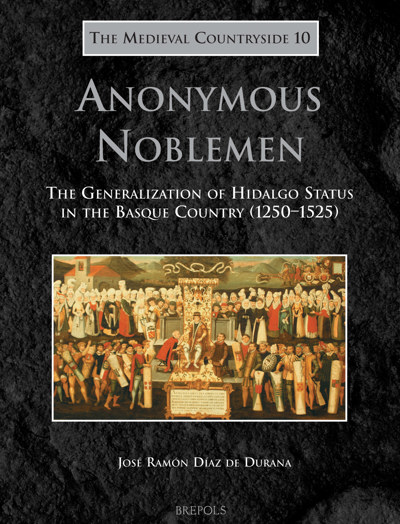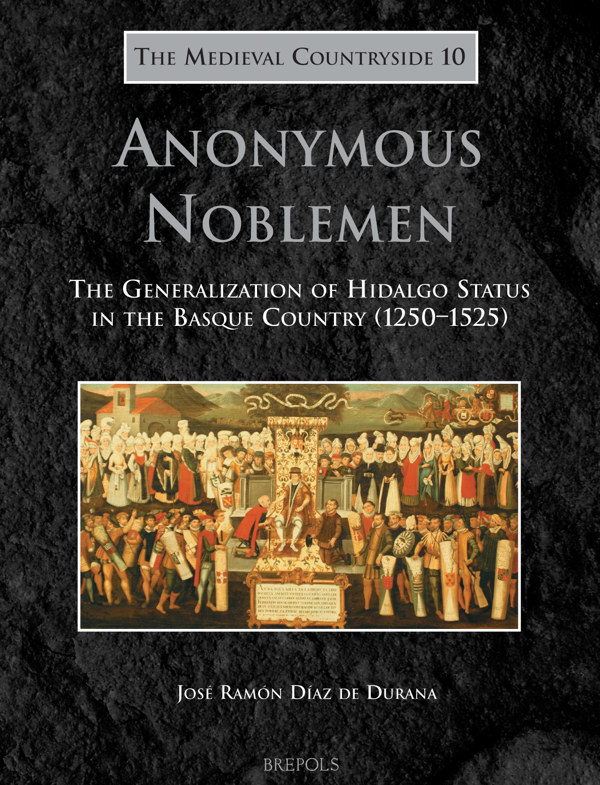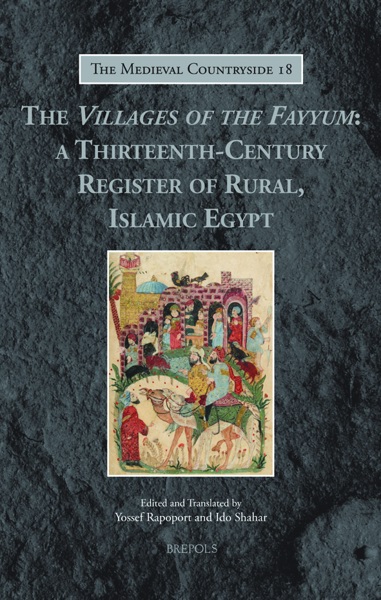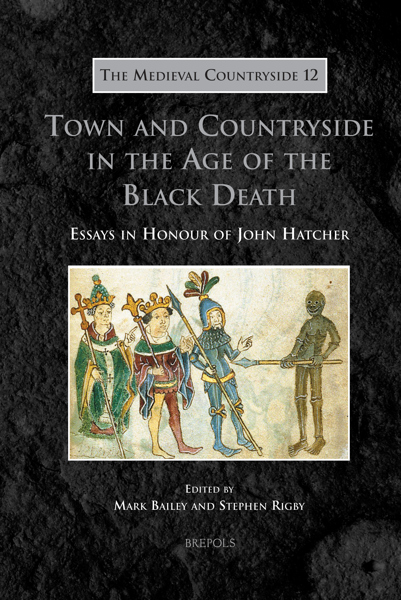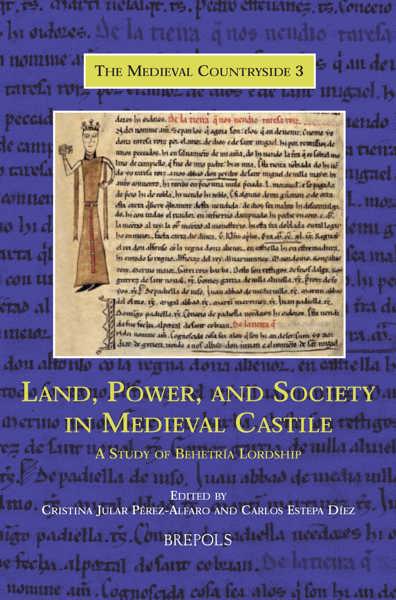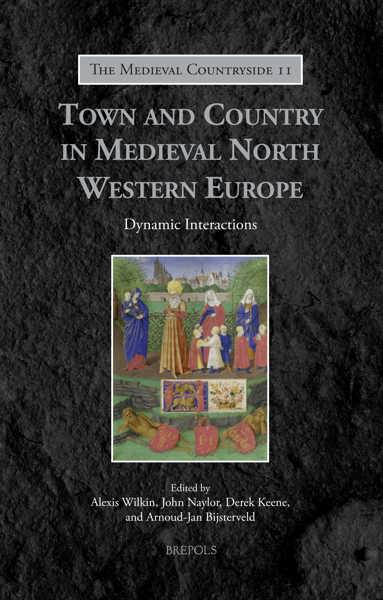
Anonymous Noblemen
The Generalization of Hidalgo Status in the Basque Country (1250-1525)
José Ramón Díaz de Durana
- Pages: 277 p.
- Size:156 x 234 mm
- Illustrations:10 tables b/w.
- Language(s):English
- Publication Year:2011
- € 45,00 EXCL. VAT RETAIL PRICE
- ISBN: 978-2-503-53244-8
- Hardback
- Available
- € 45,00 EXCL. VAT RETAIL PRICE
- ISBN: 978-2-503-55968-1
- E-book
- Available
"Few if any historians could have written this book. It reflects a lifetime of dedication to the subject, a meticulous fairness in examining the documentation, and an exemplary respect for those who, either before him or together with him, have contributed to the making of this history." (Teofilo Ruiz, in: The Medieval Review, 12.06.15)
Towards the end of the Middle Ages one of Europe’s most important concentrations of nobility was to be found on the Spanish Atlantic coast between Asturias and Guipúzcoa. Many of these nobles were hidalgos, proud but impoverished nobles common in sixteenth-century picaresque novels a full four hundred years before historians turned their attention to them. This book (which is linked to over a decade of research by a team of specialists into the social, economic, political, and ideological transformations that the Basque Country underwent between the fourteenth and sixteenth centuries) analyses the group in the Basque Country, with particular emphasis on the question of how and why hidalgo status became universal in the coastal areas but not in the interior. In part one the author reviews the historiography both of this group and of the lesser nobility elsewhere in Europe. The group is then characterized and placed in its historical context: the social conflicts that racked the fourteenth and fifteenth centuries. Finally, in a series of case studies of the hidalgos of Álava and their commoner neighbours, with whom they frequently struggled for control of village life, the author studies their reactions to the political transformations which took place at the time, as well as their relationship with the landed aristocracy, in whose client networks they inevitably became involved.
Prologue
Acknowledgements
List of Illustrations
Introduction
Chapter 1: The Problem of Nobility
Chapter 2: Hidalguía in the Basque Lands
Chapter 3: Sources and Preliminary Presentation
Chapter 4: Legal Status of Hidalgos
Chapter 5: Social Conflicts in Basque Lands
Chapter 6: The Hidalgos and the Creation of the Provinces
Chapter 7: Fiscality versus Exemption
Chapter 8: Hidalgos of Álava
Chapter 9: Lawsuits over Tax Exemption
Chapter 10: Hidalgos and Commoners
Conclusions
Appendix
Source Material and Bibliography
Index
